CHICAGO NURSING HOME FALLS ATTORNEY
PRACTICE AREAS
Chicago Nursing Home Falls Lawyer
Nursing home residents or those living at assisted living facilities in Chicago have a much higher fall risk. Even in a skilled nursing facility with a very high level of care, nursing home abuse and neglect can still occur. In these cases, you need a Chicago nursing home falls lawyer. Nursing home abuse is not restricted to physical abuse. Other forms of nursing home abuse and neglect exist.
If you suspect nursing home abuse has injured or killed your loved one, you need an experienced Chicago nursing home abuse lawyer at Curcio & Casciato. Our Chicago nursing home abuse lawyers prioritize compassion and dedication for every attorney-client relationship.
We fight for victims’s rights in Cook County, Lake County, DuPage County, West Town, Will County, and the surrounding areas.
To schedule a free case evaluation for your injured family member with a seasoned Chicago elderly abuse attorney, call 312-321-1111 today.
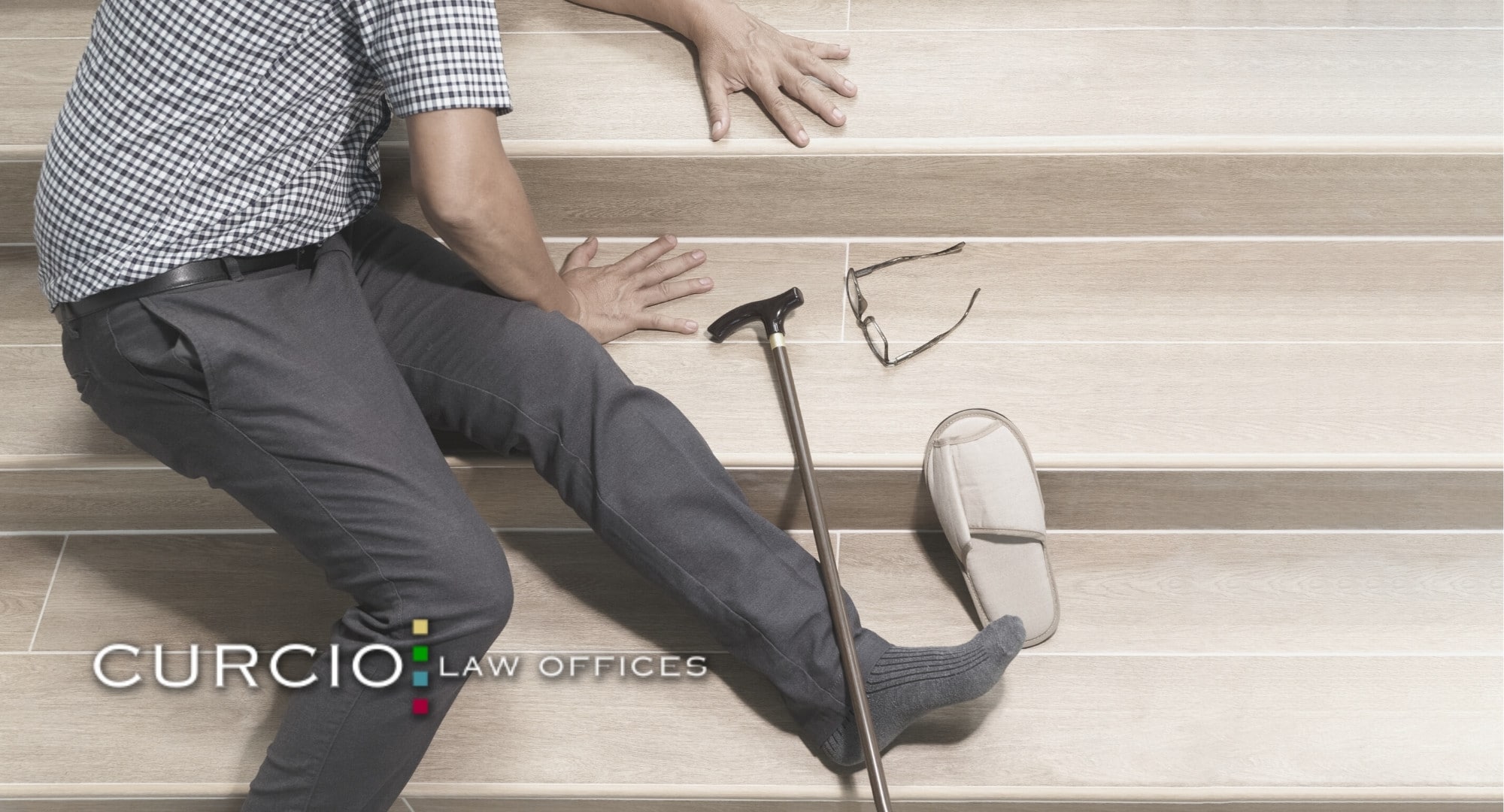
Chicago Nursing Home Abuse Lawyers Fighting for Nursing Home Residents
If elderly residents suffer from a fall or elder abuse in a nursing home facility, they may have a Chicago nursing home abuse case. Family members of nursing home patients could file a personal injury lawsuit or a wrongful death lawsuit on behalf of their loved ones if their loved one suffered injuries due to neglect in a nursing home setting. If you suspect abuse, it’s important to speak with an experienced Chicago nursing home abuse lawyer to ensure that you obtain just compensation from responsible parties. Our Illinois nursing home abuse lawyer team understands how to report nursing home abuse and hold our nursing home facilities accountable for their negligent actions.
What is Nursing Home Abuse in Illinois?
Nursing home abuse is a broad term that encompasses a number of different forms of abuse and neglect. Examples include physical abuse, financial abuse, sexual abuse, emotional abuse, verbal abuse, psychological abuse, and other types of nursing home negligence.
Nursing home abuse doesn’t just involve sexual abuse, medication errors, financial abuse, and accidents due to abuse or neglect. Nursing home abuse/neglect can also surface as nursing home falls due to poor supervision, hazards, or dropping a patient.
It may seem strange that “accidental” falls are under the same umbrella as sexual abuse, financial abuse, or physical abuse. However, falls can still be a form of elder abuse. This is because Chicago nursing home falls often happen due to a lack of supervision and a lack of proper safety measures within the nursing facility or assisted living facility.
Our Chicago nursing home abuse attorney team understands that a bad fall can result in elderly residents becoming bedridden, which can result in declining health. Understaffing and a lack of proper infrastructure are telltale signs of nursing home abuse.
How Can a Chicago Nursing Home Falls Lawyer Help?
A Chicago nursing home neglect lawyer can offer a free consultation about your situation to determine whether or not you have a valid elder abuse case against a number of Illinois nursing homes and assisted living facilities. Scheduling a free consultation means that you don’t pay legal fees to our legal team unless we secure a recovery for you.
In other words, our Chicago nursing home abuse law firm won’t burden you with more bills to pay during a time when you’re already paying for medical care for your loved one.
At Curcio Law Group, we represent nursing home residents who have faced elder abuse and neglect at their Illinois nursing home facility. Illinois nursing home residents and their family members deserve a law firm that truly cares about the outcome of their nursing home abuse or neglect case.
Nursing home staff members are obligated (and paid) to provide proper care for their residents, providing them with as much dignity as possible.
If a nursing home resident suffers nursing home abuse or neglect, a seasoned Chicago nursing home abuse attorney can help you pursue compensation. We start by establishing liability in your nursing home abuse case. Then, our law firm attempts to recover compensation for the following injury-related losses.
- Current and future medical care costs
- Pain and suffering
- Current and future physical therapy costs
- Disability
- Other expenses related to the physical injuries
- Changes in quality of life
Our Chicago emotional distress lawyer can show you how to calculate pain & suffering, help you calculate lost income or wages, and help you with the average cost of a funeral, if applicable.
Unwitnessed Fall in Nursing Home
In cases of an unwitnessed fall in a nursing home, an experienced nursing home abuse lawyer can still build a compelling personal injury case by gathering and analyzing available evidence to establish negligence or lapses in care. This may involve reviewing medical records, nursing home logs, and surveillance footage to reconstruct the incident and identify potential failures in safety protocols or environmental hazards.
A seasoned nursing home abuse lawyer can also interview staff and other residents for any indirect observations or insights into the facility’s routines and resident care practices. Through a meticulous examination of the circumstances surrounding the fall and the nursing home’s adherence to standard care practices, a skilled nursing home abuse attorney team can advocate effectively for the injured resident, seeking justice and compensation for their injuries and suffering, even in the absence of direct witnesses to the fall.
Falls in Nursing Homes Statistics
It’s important to understand how likely a fall is in nursing homes. Below, we list some notable statistics.
- Approximately 1,800 elderly residents die annualy from serious injuries from falls.
- Over 1.4 million elders live in nursing home facilities in the United States. Deaths related to nursing home falls make up 20% of all deaths in that age group.
- According to the Illinois Department of Aging, there were 16,507 instances of reported abuse, financial abuse, and neglect to Adult Protective Services.
- According to the Illinois Department of Public Health, an older adult dies from a fall every 20 minutes in the United States.
- Around 10-20% of these falls result in a serious injury, such as a fracture.
- Between 50-75% of residents in nursing facilities fall every year.
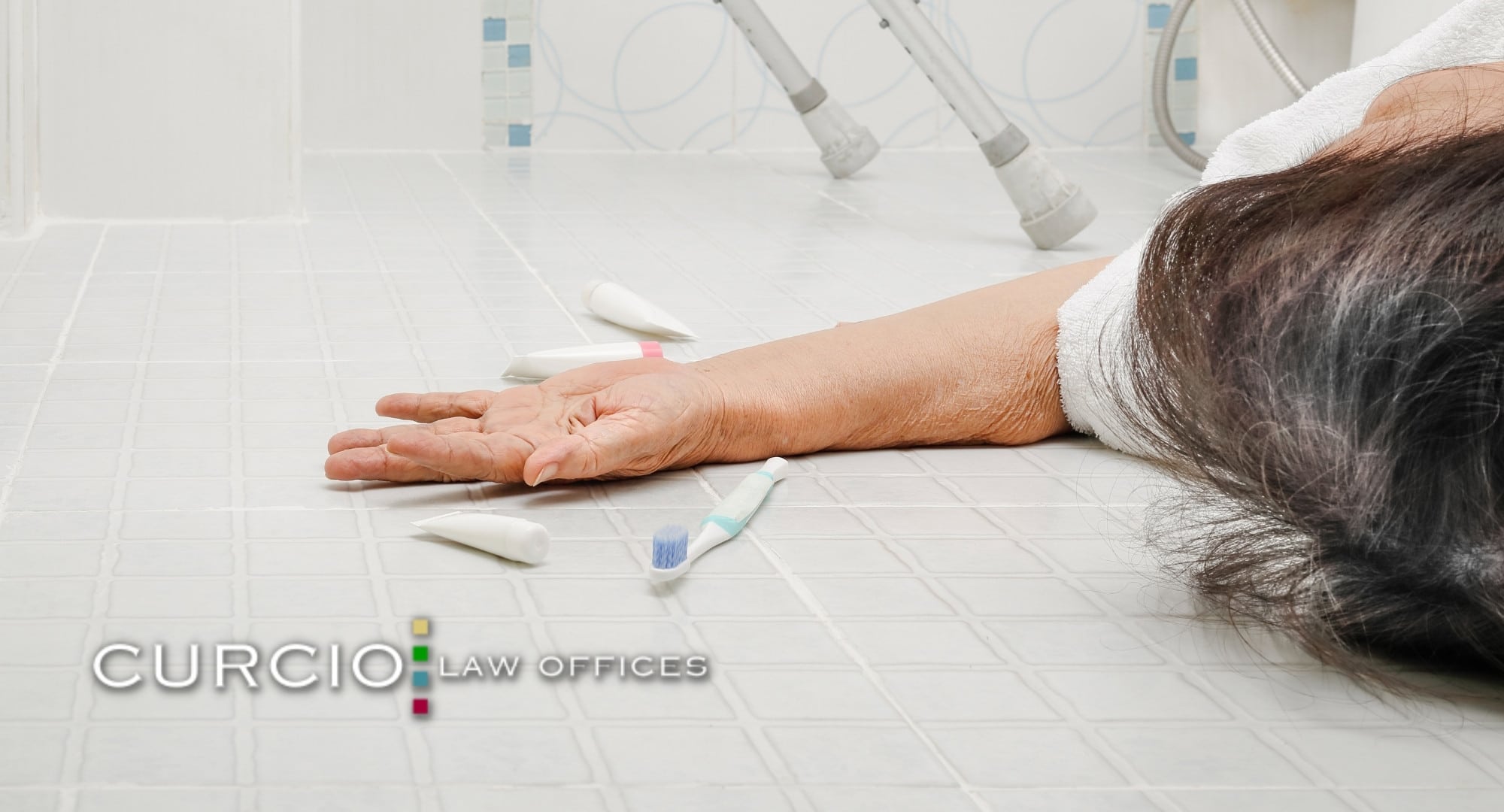
Common Nursing Home Falls Injuries and Consequences
Falls are very common. However, this does not make them any less serious. If a resident sees a serious decline in mobility after a fall, the strength of their bodies will decline even further. The complications of limited mobility in nursing home residents mean less mobile residents are then at a higher risk of developing infections and other injuries.
Common fall-related injuries include:
Hematoma (brain bleeding)
Hip fractures
Femur fractures
Life-threatening injuries
Other types of fractures
Death
Broken Bones
Broken bones are a common yet serious consequence of falls in nursing homes, often indicative of nursing home abuse and neglect. The average cost of a broken bone can be substantial regarding medical care and the impact on the resident’s quality of life and mobility. The Chicago nursing home abuse lawyers at Curcio & Casciato are dedicated to representing the interests of nursing home residents who have suffered broken bones due to inadequate care.
Back and Spinal Cord Injuries
Back and spinal cord injuries resulting from falls in a nursing facility can be devastating, often due to nursing home negligence and failure to provide proper care. These injuries can range in severity, with some leading to permanent disability or paralysis. Curcio & Casciato’ Chicago spinal cord injury lawyer is adept at handling cases involving all types of spinal fractures, ensuring that victims receive the comprehensive legal representation needed to address the significant medical, financial, and emotional repercussions of such injuries.
Infections
Infections, particularly pneumonia in the elderly, can develop following a fall, especially if the fall results in hospitalization or immobility. Curcio & Casciato’ Chicago nursing home infection lawyer is adept at handling cases where lack of proper care or unsanitary conditions after a fall lead to severe infections. Every Illinois nursing home understands antibiotic stewardship and is legally required to provide reasonable living conditions for residents. Our firm holds nursing homes and assisted living facilities accountable for preventable infections.
Bedsores
When a resident falls in a nursing home setting, the resulting immobility can lead to bedsores, particularly if the fall leads to prolonged bed rest without appropriate care. Curcio & Casciato has a Chicago nursing home bed sores attorney who is experienced in pressure ulcer staging and the legal implications of advanced bedsores. These cases often involve advanced bedsores, such as a stage 4 bedsore. Due to complications and infections arising from inadequate post-fall care and monitoring, the stage 4 life expectancy isn’t good.
MRSA
Falls in nursing homes can sometimes lead to hospitalizations or open wounds, increasing the risk of MRSA infections in already vulnerable residents. Curcio & Casciato’ Chicago MRSA lawyer handles in cases of Chicago nursing home abuse where neglect in post-fall care and sanitary practices in a nursing home facility contribute to MRSA infections. Our firm is dedicated to addressing such instances of nursing home neglect, ensuring victims receive the attention and compensation they deserve.
UTI
Urinary Tract Infections (UTIs), including UTI delirium, can occur more frequently following a fall in a nursing home due to immobility or the improper use of catheters during the recovery period. The Chicago nursing home UTI lawyer at Curcio & Casciato is adept at handling cases where such infections directly result from nursing home neglect post-fall. Our team works tirelessly to address these issues of Chicago nursing home abuse and ensure that affected residents are provided with the necessary care and compensation.
Covid-19
Falls in can lead to increased vulnerability to Covid-19, especially if the fall results in a resident being bedridden or requiring hospitalization. Curcio & Casciato’ Chicago Covid-19 nursing home lawyer is prepared to represent residents who have suffered falls and been exposed to COVID-19 due to inadequate infection control measures in the nursing home facility.
Sepsis
Falls in nursing homes can lead to serious injuries that, if not properly treated, may result in sepsis, a life-threatening response to infection. The Chicago nursing home sepsis attorneys at Curcio & Casciato understand the critical nature of timely and effective medical treatment following a fall. We are experienced in handling nursing home abuse cases where neglect in post-fall care leads to sepsis through all the 3 stages of sepsis in nursing home facilities.
Wrongful Death
If your loved one died as a result of their fall, our Chicago nursing home wrongful death lawyers could help you file a wrongful death lawsuit on their behalf as a family member. Generally, you can sue the nursing home facility for elder abuse and neglect. Schedule a free consultation with us to determine whether or not you have a personal injury case.
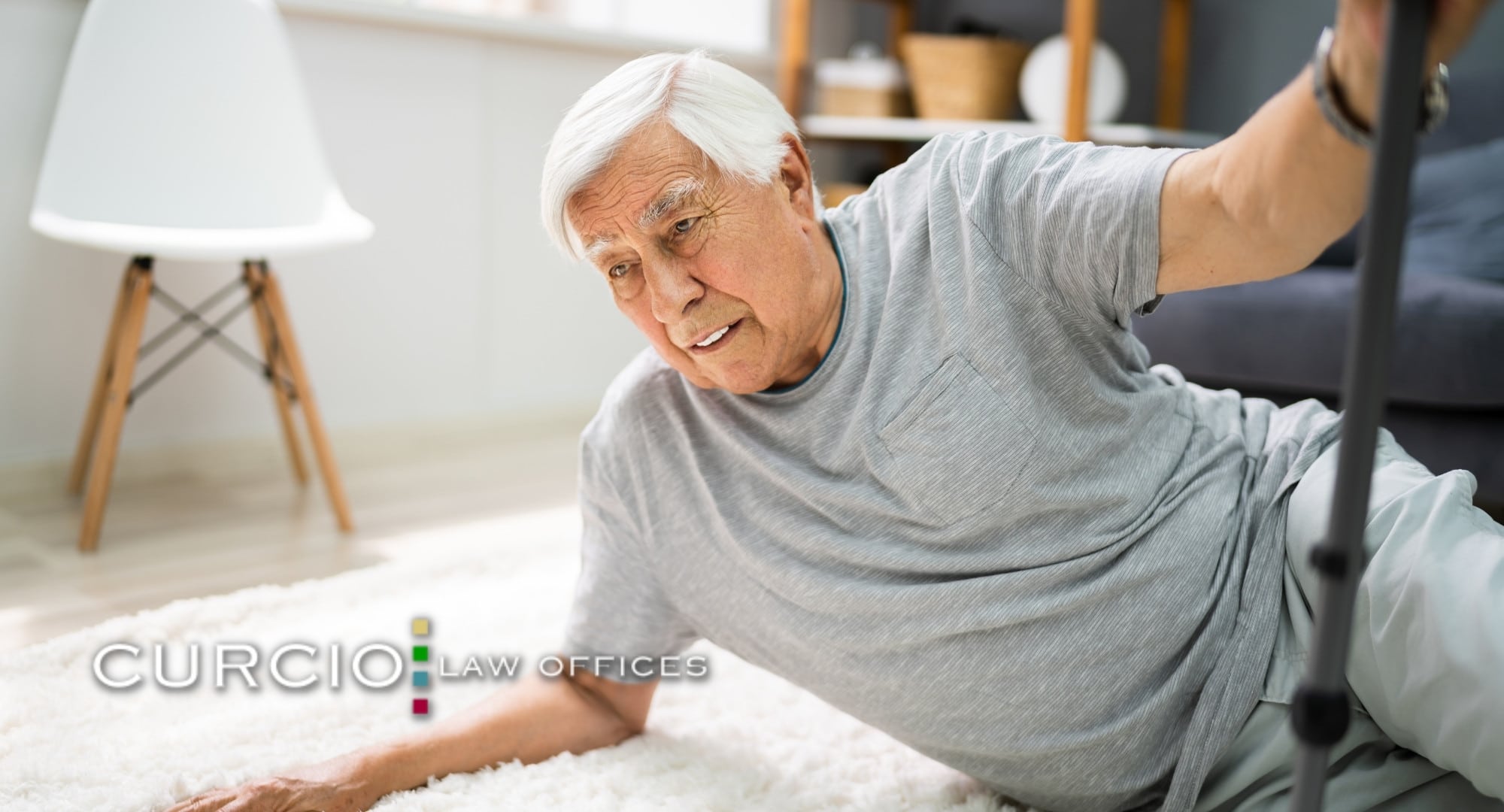
What Causes Falls in Nursing Homes?
There is generally more than one cause that leads to falls in nursing home abuse cases. Generally, nursing home patients have more health problems than older adults in community settings. Residents at an Illinois nursing home are likely to be frail, have more memory problems, and have more difficulty with mobility. These factors can be compounded by nursing home negligence.
Below, our nursing home abuse lawyers list some of the most common causes of Illinois nursing home falls.
Weak muscles and walking problems cause approximately 24% of all falls.
Environmental hazards cause around 16-27% of all falls. Examples include equipment that has been left in the hallways of the facility and other barriers.
Poor lighting, slick floors, beds that are too high, bad wheelchairs, etc.
Getting from a wheelchair to a bed, badly fitting shoes, poor foot care, and improperly using walkers or canes.
Nursing Home Understaffing
Chicago nursing home understaffing is a significant factor contributing to falls within these facilities. When there are not enough staff members to provide adequate supervision and assistance, residents, especially those who are vulnerable or have mobility issues, are at a higher risk of falling.
Medication Errors
Medication errors in nursing homes can lead to falls among residents, particularly when administering incorrect dosages or medications that affect balance and cognition. Chicago nursing home medication errors lawyers at our firm are experienced in handling cases where such errors have led to falls, examining whether there are grounds to sue a doctor for prescribing wrong medication or if the nursing home staff failed to administer medications correctly, resulting in preventable accidents.
Unreasonable Restraint
When residents are inappropriately restrained, they may attempt to move freely, leading to falls that cause physical injuries. Curcio & Casciato’ Chicago unreasonable restraint lawyers are skilled in addressing these issues, ensuring that the medical standard of care is upheld and that residents are protected from psychological abuse and unnecessary physical harm, advocating for the necessary medical care, and addressing violations of Illinois nursing home abuse standards.
Malnutrition
Malnutrition in nursing homes can weaken residents, making them more susceptible to falls due to diminished muscle strength and overall health. Chicago nursing home malnutrition lawyers at our law firm are dedicated to addressing cases of abuse or neglect that lead to malnutrition, recognizing the critical role proper nutrition plays in maintaining residents’ health and preventing falls. Our law firm is committed to ensuring that nursing homes meet their obligations to provide adequate nutrition to all residents.
Nursing Facility Neglect
The physical condition and maintenance of the Illinois nursing home itself can be a direct cause of falls among residents. Issues such as poor lighting, slippery floors, and improperly maintained equipment can all lead to accidents. Chicago premises liability lawyers at Curcio & Casciato have extensive experience in cases where the neglect of the nursing facilities has led to falls.
Not Following the Diabetes Nursing Care Plan for Diabetic Residents
Failing to adhere to the diabetes nursing care plan for diabetic residents in an Illinois nursing home can lead to falls. Proper management of diabetes is crucial to prevent hypoglycemia or hyperglycemia, both of which can cause dizziness, weakness, and confusion, increasing the risk of falls. Curcio & Casciato is experienced in handling cases in skilled nursing facilities where the neglect of specific care plans for diabetic residents has resulted in preventable falls.
Chicago Nursing Home Fall Interventions
Chicago nursing home fall interventions include a range of strategies tailored to address the specific risks and needs of the elderly population in these facilities. These interventions often involve environmental modifications, staff training programs focused on fall prevention, the use of assistive devices for residents, and personalized care plans that include regular risk assessments and monitoring to ensure the safety and well-being of all residents.
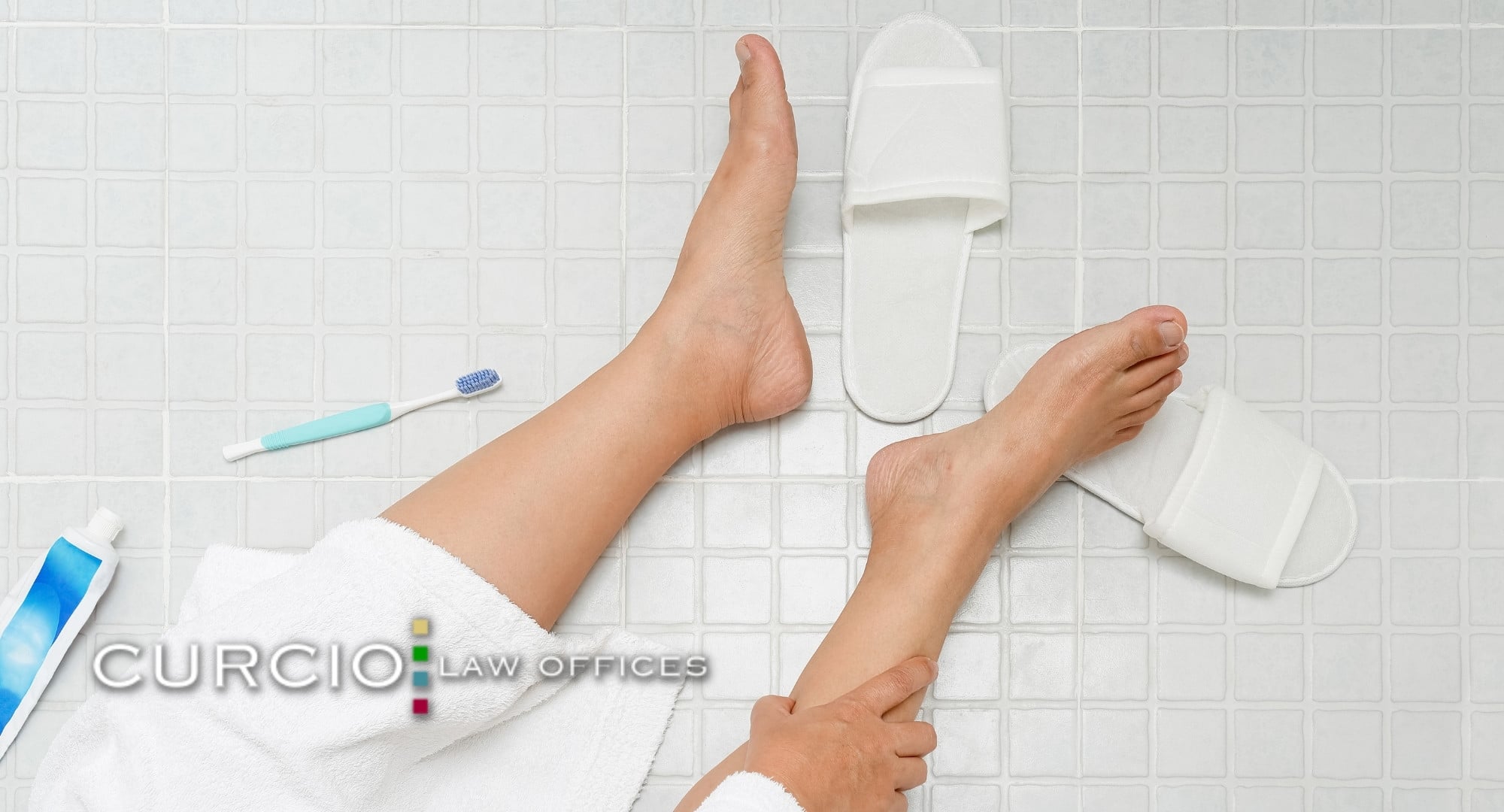
Risk Fall Assessment for Chicago Nursing Homes
Risk fall assessments in Chicago nursing homes are crucial tools used to identify residents who are at a higher risk of falling, allowing for the implementation of targeted preventative measures. Nursing facilities have a duty of care that includes recognizing fall risks and maintaining a safe environment for residents. When they fail to uphold this standard, they increase fall risks and put themselves at risk of a personal injury or wrongful death claim.
Preventing Falls in Nursing Homes
Certain interventions and solutions are necessary to keep residents safe and avoid a nursing home abuse lawsuit. Here are strategies any Chicago nursing home could implement to reduce fall risks and injury:
Provide healthy meals and vitamins
Balance and strength training
Physical therapy
Clean environments
Decrease sedatives, anti-depressants, and other unnecessary medications
Correct vision and hearing problems
Properly treat arrhythmia
Provide properly-fitted footwear
Chicago Nursing Home Falls Lawsuit
Chicago nursing home residents and their families can sue a nursing home for abuse and neglect. According to 42 U.S. Code Chapter 7, nursing homes must maintain certain safety standards and standards of care. Strictly adhering to these requirements protects both the residents and the facility itself.
If nursing home staff members engage in physical abuse, emotional abuse, sexual abuse, financial abuse, verbal abuse, psychological abuse or other types of abuse, they could be held liable for those actions. Additionally, the facility itself could be liable for the abuse or neglect of its residents. If you suspect nursing home neglect, abuse, or negligence, call a nursing home abuse lawyer at Curcio & Casciato for a free case evaluation.
Chicago Nursing Home Falls FAQs
What is Considered a Fall in a Nursing Home?
Any episode where a nursing home resident loses his or her balance and falls or would have fallen without the intervention of nursing home staff members is considered a fall. Even if nursing home employees or other residents don’t witness the fall, a fall is considered to have occurred if a resident is found on the floor.
When Do Most Falls Occur in Nursing Homes?
Most falls occur in nursing homes primarily during the evenings and early mornings, often due to reduced staff availability and increased resident activity during these times. These periods coincide with routine activities such as bathing, using the restroom, and transitioning to and from bed, which inherently increase the risk of falls.
What To Do When a Resident Falls in a Nursing Home
When a resident falls in a nursing home, the immediate priority is to assess their condition and provide necessary medical care, followed by notifying their family and documenting the incident in detail to understand the circumstances and prevent future falls.
What is the Most Common Cause of Falls in Nursing Homes?
The most common cause of falls in nursing homes is environmental hazards, including slippery floors, inadequate lighting, and improperly maintained or placed furniture and equipment. Additionally, residents’ physical and cognitive impairments contribute significantly to the risk of falls.
Where Do Most Falls Occur in Nursing Homes?
Most falls occur in nursing homes where residents are most active or vulnerable, such as in their bedrooms, bathrooms, and communal areas like dining rooms and hallways, due to mobility challenges and environmental factors.
Can You Sue a Nursing Home for a Fall in Illinois?
You can sue a nursing home in Illinois for a fall if the fall was due to the facility’s negligence, such as inadequate care, poor environmental conditions, or failure to implement necessary safety measures. Successful legal action requires proving that the nursing home’s actions or inactions directly contributed to the fall and the resultant harm.
Is Falling Fatal for Elderly Residents?
Falling can be fatal for elderly residents, as such incidents significantly increase the risk of severe injuries like hip fractures and head injuries, which can lead to deteriorated health conditions or even death. The fragility of older adults’ health often means that the consequences of a fall are more severe and recovery more complicated.
How Long Does it Take for an Elderly Person to Recover From a Fall?
The amount of time it will take for an elderly person to recover from a fall depends on several factors, including the injuries sustained, the individual’s overall health and pre-existing conditions, and the quality and promptness of medical and rehabilitative care received. Recovery can range from weeks to months, and sometimes, lasting effects may never fully resolve.
What is the Nursing Home Care Act?
The Nursing Home Care Act is a comprehensive set of regulations designed to protect the rights and well-being of residents in nursing facilities, ensuring they receive proper care and live in a safe, respectful environment, providing the option to refuse medical treatment, for example. It outlines the legal obligations of nursing homes to provide adequate staffing, maintain facilities, and ensure residents’ health, safety, and privacy, allowing for legal recourse in cases of violation.
What To Do If You Suspect Nursing Home Abuse in Illinois?
If you suspect nursing home abuse, it’s important to seek legal representation as soon as possible. You can also file a complaint with the Illinois Department of Public Health or the Nursing Home Ombudsman.
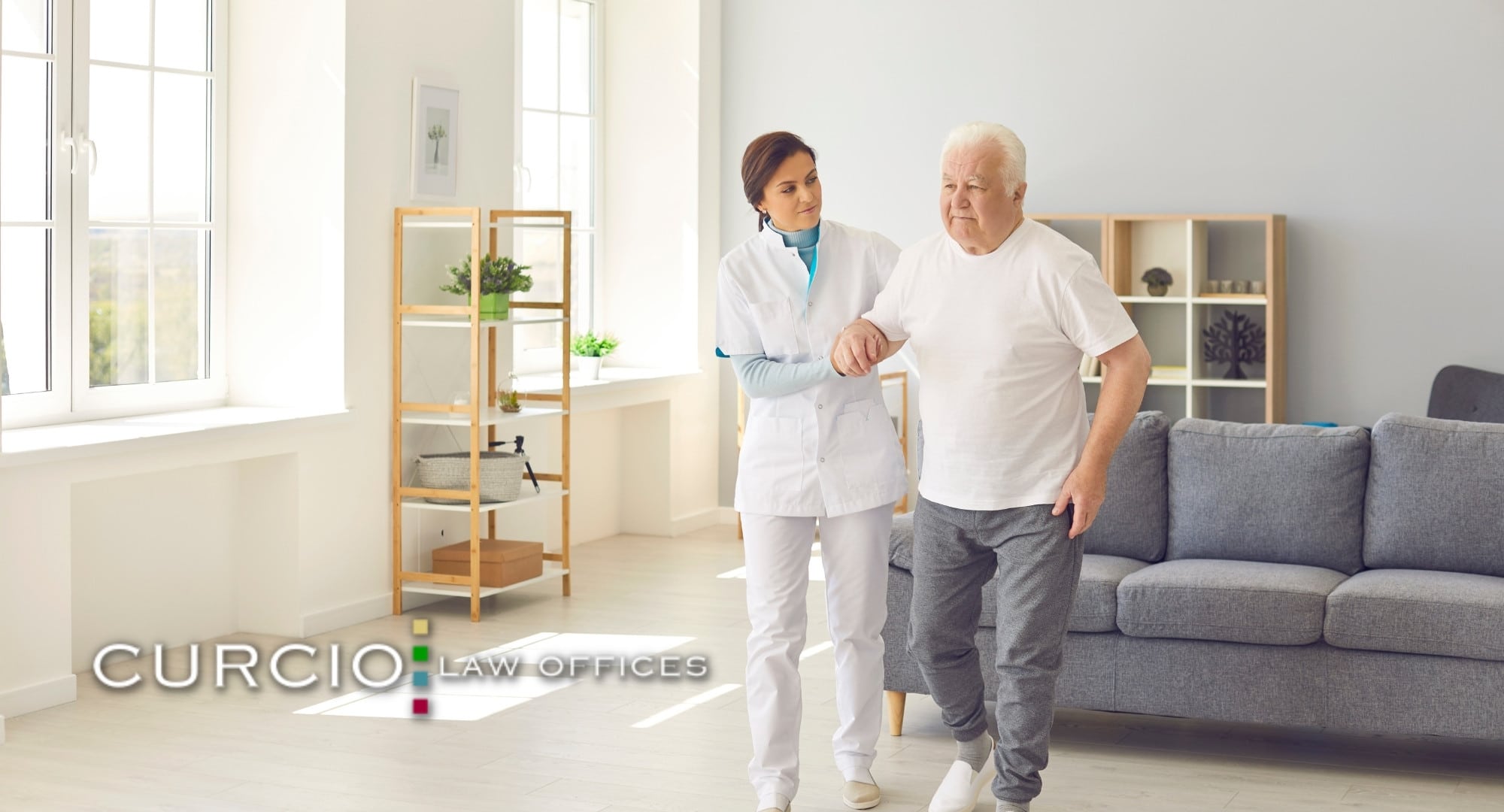
Experienced Chicago Nursing Home Falls Lawyers
If you’re worried that your loved one suffered abuse at their long-term care facility, you need a nursing home abuse lawyer for your case. Victims of Chicago nursing home abuse or neglect can hold the responsible parties accountable and demand fair compensation.
We handle cases from all over the state of Illinois; contact our law firm or speak with a Cook County personal injury lawyer, DuPage County personal injury lawyer, West Town personal injury lawyer, or Will County personal injury lawyer to learn more.
To determine whether or not you have a case, contact a nursing home abuse attorney with Curcio & Casciato. Call 312-321-1111 to schedule your free consultation. All confidential or sensitive information you provide to us will be kept confidential. We will help you throughout the process, including gathering medical records and litigating your case in court. That way, you can focus on either caring for your loved ones or grieving for their loss of them.


